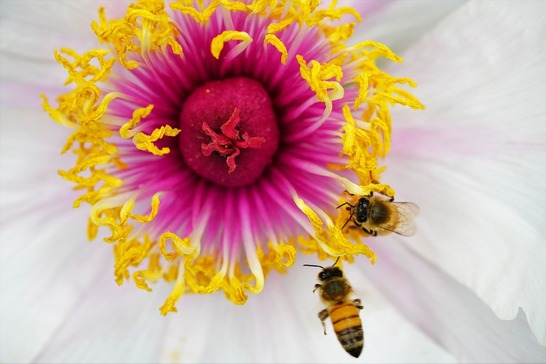|
Spreadsheets are great to collect, organize information, but cannot take the place of interpersonal communication. Any collaboration that hopes to rise above the purely functional must make time for process. Information stripped of the element of interaction cannot replace, within complex systems, what Nora Bateson terms "warm data"—data that keeps the nest of relations intact. It is a testament to the influence of the machine paradigm that we have come to see giving time to the uncertainty, emergence, and complexity that experiencing the relational process brings us face-to-face with as unnecessary to co-creating with each other. Co-creation—as the instinct of play—asks of us eye-gazing—the ability to connect and synchronize and align with how each of us partnering is moving. Anything else is a low-value offering that is operating in a paradigm that sees us as discrete entities, and promotes disconnection as well as low trust.
While I have worked in a variety of settings, I acknowledge I have different expectations from people who come to me speaking the language of wanting to challenge white cultural norms. I confess to having my heart broken a little when, even there, I see characteristics such as transactional communication, perfectionism, individualism, and fears of open conflict play out. (See characteristics of a white supremacy culture, as adapted from Tema Okun.) AND To acknowledge the other's sovereignty. To acknowledge that Spirit is always steering me in the right direction, and if a collaboration constructed on apparently similar values collapses, it is not a bad thing at all. I move into the knowing of my own commitments, contribution, and values. It is upon the other to know how they did or did not show up—where they turned rigid. I move into taking in the learning that I would like more clarity from potential collaborators early on about how resilient they are when intentions and stated values come face to face with the "slippery mess of variables, changes, and ambiguities." I take in the reminder that I find it hard to move well with rigid people, and that this speaks to hidden forces within myself that, for now, come into play to founder my own equanimity.
0 Comments
How do we dive into the depths and go beyond the reach of naysaying inner/outer voices to access our creative knowing? What surprising wisdom already lies within us? Or images? How do we expand the notion of family to include the Earth, ancestors? These were among the questions we looked at in today's writing class.
Writing is not therapy—but in this class I do hold writing within a psychospiritual container. Which is why it warmed me to get this message from a student as we were wrapping up: "This class is like therapy tonight, only useful therapy, gut deep." El cenote is available to us to redream the world!  In preparation for tomorrow's lecture for the Writing Spiritual Memoir class, I have been struck by the following definition of culture from Seneca First Nation member and psychologist Terry Cross: "culture is one group or people’s preferred way of meeting their basic human needs.” I wonder what basic needs a dominator culture tries to meet—the authoritarian, repressive, warring strands that have been showing up in culture. Retaliation is not a basic human need. Love is. Excluding is not a basic human need. Belonging is. Punishment is not a basic human need. Understanding is. How do we meet the deeper needs for love, belonging, acceptance, and peace that are foundational to being human—or, shall we say, to having a human experience in a sentient, interdependent universe—when there is fear around claiming them? How do we return to a remembering of our interconnectedness when the paradigm we inhabit emphasizes cool individualism, and our lives have only partially retrieved our true relational embeddedness? Without such a relational paradigm to uphold us, we are all trying to survive—having arrived into a canny illusion of such lack, such incompleteness--sometimes striving merely to complete the picture, close the gaps. I feel the grief. And then something rises up: a memory, a welling up. Even if it seems that the world is constantly trying to take away or push back on our wholeness, it is a good thing wholeness is there, always—without beginning or end—sourced in a stream that resembles most closely, perhaps, love. Even with all the unresolved/unaddressed grief from the illusion of alienation, this is our inalienable right—beyond any frameworks of knowledge. Can we shape our cultures to reflect it? |
Get updates of New blog postsconnect with me ON SOCIALSArchives
April 2024
|


 RSS Feed
RSS Feed